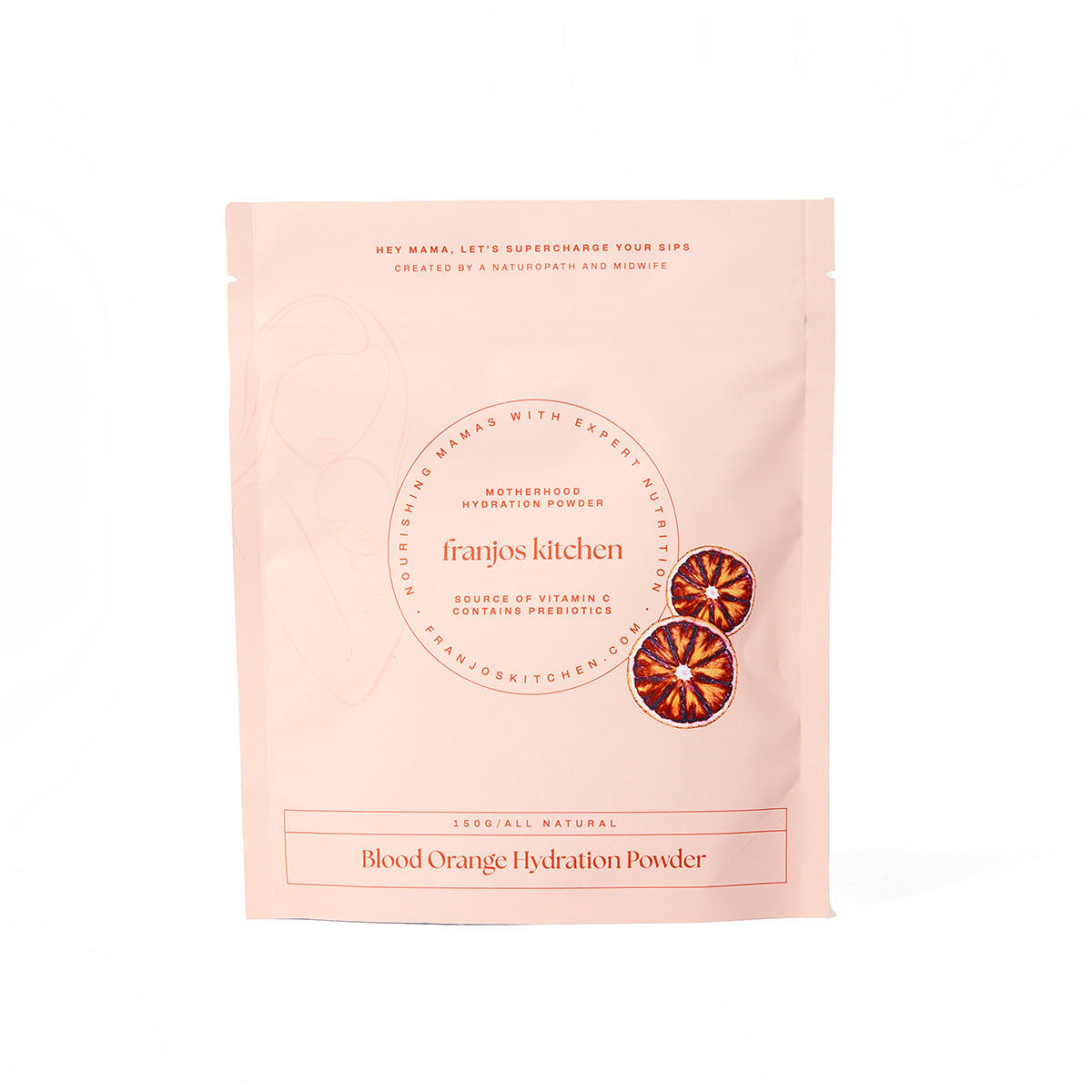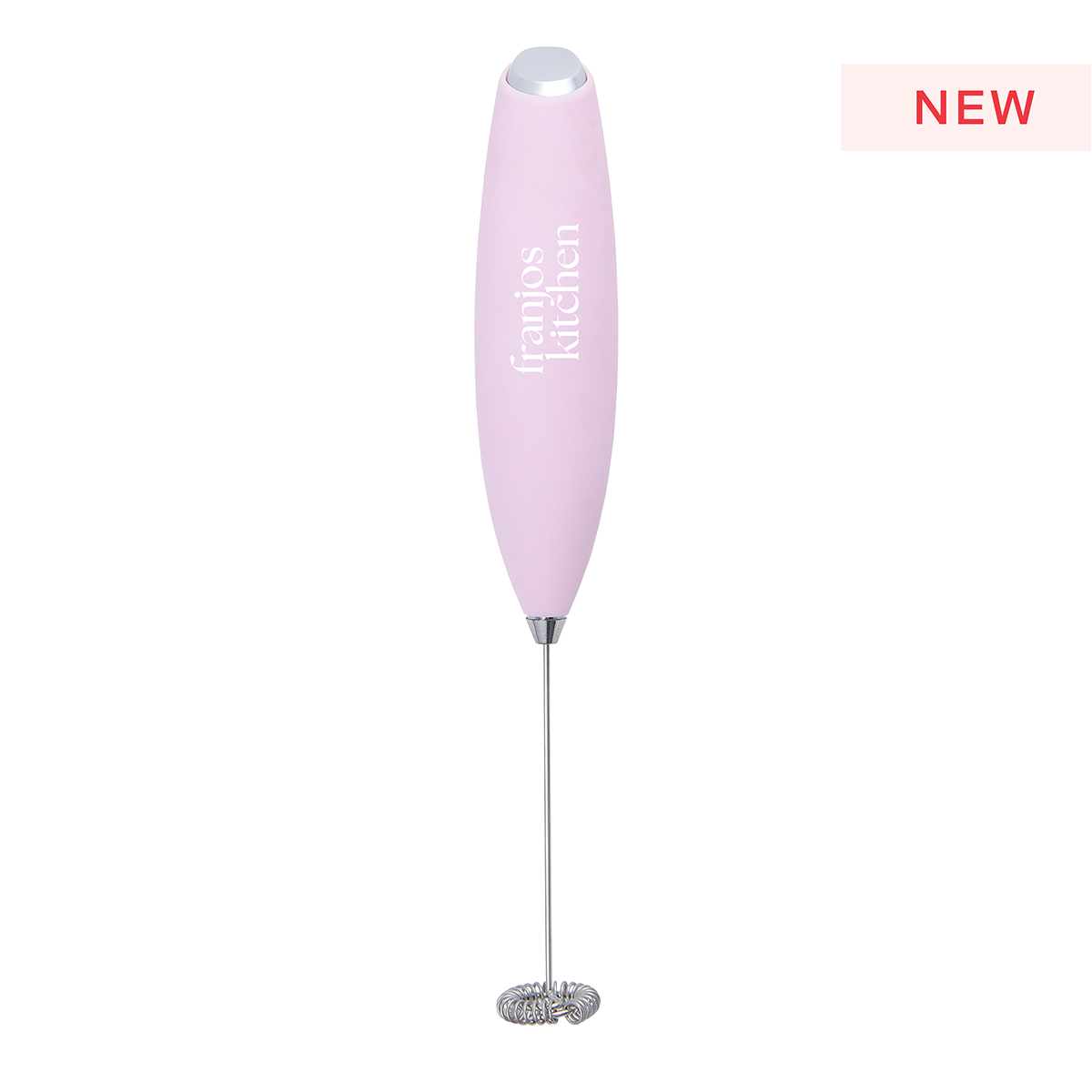Everything you need to know about Nutrition for Breastfeeding
Breastfeeding is such a wonderful bond,
But it can also be really challenging for new mums. Particularly when milk supply is an issue, it can be so frustrating and disheartening. Here are some tips and foods to improve milk supply and quality along with your Franjo's Kitchen Lactation helpers.
POST PARTUM CARE
Nowadays there is a fantastic focus on health during pregnancy, and women are learning more about what to eat, which supplements to take, and how to stay healthy during pregnancy. There is also quite a bit of preparation for labour, with ante-natal classes, birth support in the form of doulas and midwives, and other external support and resources available.
However, when it comes to those first few weeks at home, really there is massive room for improvement when it comes to supporting a new mum. Many of us underestimate the amount of stress our body has just gone through (9 months of growing a human, the intensity of labour, and now recovery, huge hormonal changes and more). So really the first few weeks after labour should be solely focused on rest and restoration, as well as learning to breastfeed. Create a warm and cosy environment for your new family, cuddle up and create that lovely skin on skin contact and really focus only on bonding, sleep and feeding.
“Really the first few weeks after labour should be solely focused on rest and restoration…”
Other things that may help post partum recovery and relaxation include lovely warm baths, essential oils and nourishing meals (more below). Check out The Hermosa Co for some lovely products for pregnancy soaks and post partum sitz baths, and some great organic products from TOM organic, including maternity pads and breast pads.
REST
When the body is in a state of stress, depletion or fatigue, it will go into a ‘fight or flight’ response, produce more adrenaline and cortisol, and basically focus its energy on defence, rather than nourishment and healing. So it’s really important to rest, rest, rest to allow the body to return to parasympathetic dominance to allow for the production of breast milk. Really aim to sleep when the baby sleeps, ie lots of naps during the day, resting with your feet up, and minimal visitors, cleaning or pottering about the house.
NUTRITION
Making rich, good quality breast milk is very taxing on the body, and we want to ensure both mum and bubs receive all the best nourishment possible to support and optimise this process. Mum will require approximately 500 additional calories per day, in the form of nourishing wholefoods, ie an additional small meal or two good sized snacks made up of the below.
Good Fats
To create rich, creamy, filling and satisfying breastmilk to ultimately achieve nice healthy weight gain in our bubs, we want to increase the good fats in mum’s diet. This means avocado, nuts and seeds, oily fish and extra virgin olive or coconut oil. Try for example a wholegrain cracker with avocado, tomato, mackerel and a squeeze of lemon, add nuts and seeds to a warm bowl of porridge or Tanker Topper Muesli; or make some nutty bliss balls with coconut oil.
Quality Carbohydrates
Carbohydrates are important for energy production and recovery and contain valuable B vitamins (especially Folate!) and minerals that are vital for mums and bubs health. Choose wholegrain, unrefined varieties though, because ‘white carbs’ such as white bread, pasta and flour are actually stripped of these nutrients during the refining process. Instead, incorporate brown rice, quinoa, buckwheat, spelt, barley, and lentils and other legumes into soups, stews and casseroles.
Tip: As a new mum, if someone offers you help, don’t hesitate to accept. Request a lovely slow cooked casserole rich in veggies, wholegrains and some protein which is just the perfect sustenance during this time!
Protein
Protein is an important component of breastmilk and is vital for the huge phase of growth and development that bubs go through. Protein also helps with mum’s muscle recovery, energy levels, sleep and mental health. Good sources of protein include fish, eggs, grass-fed lean red meat, organic poultry, beans and legumes, nuts and seeds, and organic yoghurt. Try to incorporate a serve of protein into every single meal.
Minerals
Minerals are essential to help relax, replenish and restore. Magnesium, in particular, helps the healing process and soothes sore muscles, while iron and calcium are important for bub’s mental and physical development. Leafy greens such as kale, silverbeet and spinach contain the highest amounts of minerals, however other vegetables, fruit and wholegrains also contribute well. We cannot stress enough the importance of a varied diet rich in whole foods and plants to ensure you are getting the whole spectrum of amazing minerals, vitamins and antioxidants.
You may also want to consider a good quality mineral or magnesium supplement, however, speak to your healthcare practitioner about whether this is right for you.
Water
Breastfeeding significantly increases mum’s water loss, so it’s really really important to rehydrate as much as possible. You should be having at least 3 litres of water a day. A great tip is to always have a big glass of water in reach during feeding, to replenish literally at each feed. And try to have warm water rather than ice cold, as it’s easier for the body to process and absorb.
Breastmilk is made up of approx. 90% water
Avoid caffeine (coffee, black tea, green tea, chai, chocolate) as much as possible, as not only does it also increase water loss, but we want to avoid any traces of caffeine entering your breastmilk. Remember that anything you put IN, needs to come OUT, and breastfeeding is actually a major pathway for detoxification. So you are still avoiding or at least minimizing any toxins, artificial ingredients, over-the-counter medication and alcohol.
Herbs
Traditionally a number of herbs have been used to increase milk supply, as they contain compounds called Galactogogues. Fenugreek, fennel, alfalfa and nettle are just a few, and may be found incorporated regularly into the diet via a lovely herbal tea (for example the Angea Organic Breastfeeding Tea). Fenugreek can also be used in cooking and baking, and Franjo’s Kitchen are a company that create wonderful cookies and crackers to support breastfeeding mothers.
WEIGHT MANAGEMENT
This is not the time for trying to lose baby weight, because if mum isn’t appropriately nourished, she will not be able to produce nourishing breastmilk for a hungry bub. In fact, fat is a way for the body to protect itself, and it will try to store and hold on while getting used to this new routine and role of breastfeeding.
The best way to approach food and weight management is to incorporate lots of those things we mentioned above, and eating good foods in abundance. By avoiding sweet treats, sugary snacks and processed foods you will keep your blood sugar levels stable and cravings at bay, and with time, when your body has recuperated, you will notice your weight going back to normal automatically. When you feel ready you may want to incorporate some gentle exercise such as a lovely walk with the pram, or some post natal yoga and stretching. However, all the while taking it easy and being mindful of the amazing things you have just achieved!
Blog written by Viv Klaver, Nutritionist, Mum, founder of Bubba & Bean baby food for the Angea Acupuncture & Yoga Blog, read more of their content here.
Pic by @lifeonwallace



